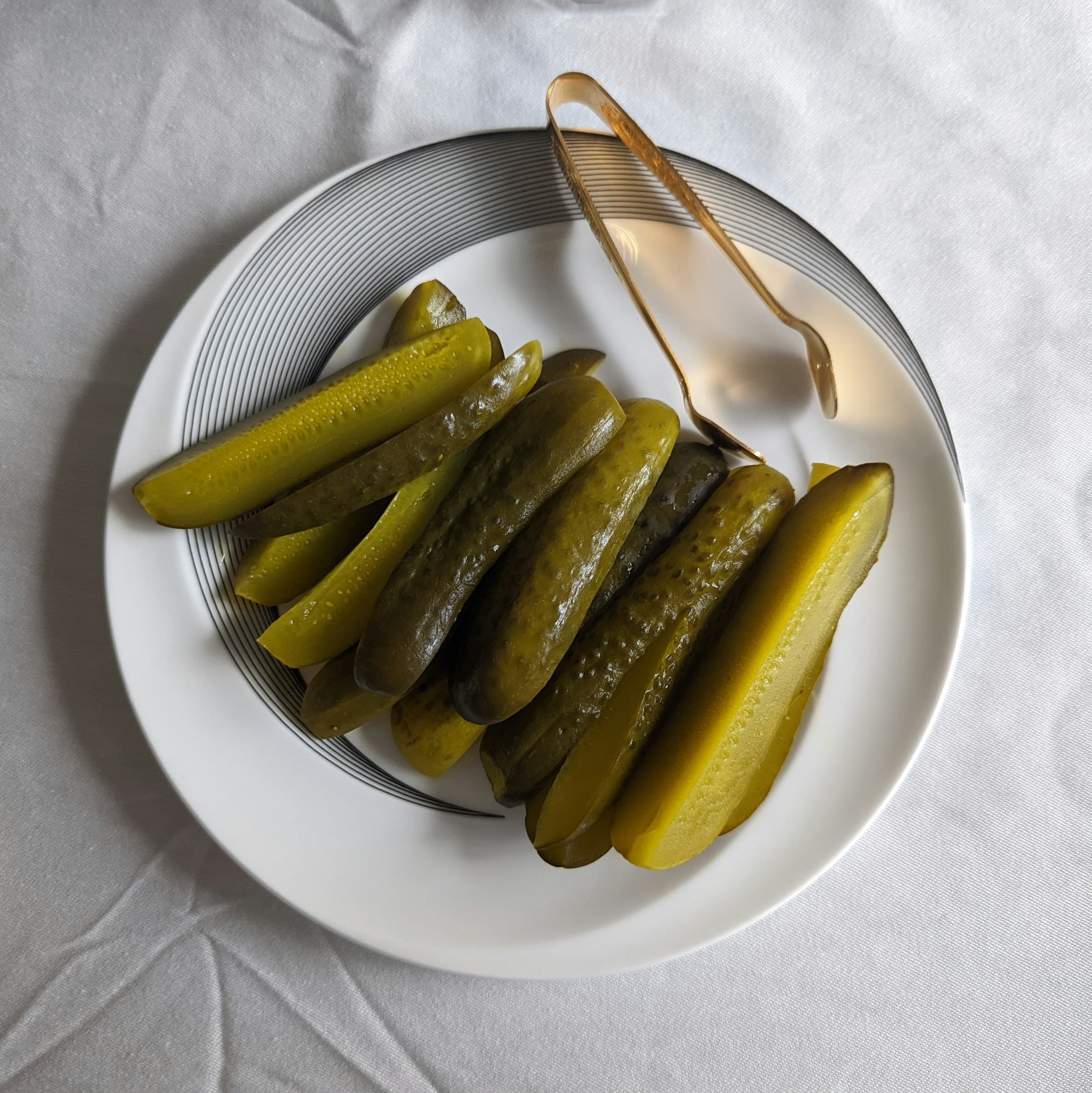We've all had that moment in life when you're eating a snack peacefully and your cute little dog glances up at you with those huge, eager eyes. It might be challenging to resist sharing your meal, especially when they appear eager. But before you hand over a pickle, make sure it's safe for them. Can dogs eat pickles? Are there any benefits, or are they possibly harmful? Let's go at the specifics so you can make an informed decision and keep your pet safe and healthy.
Are Pickles Good for Dogs?
As you must know, the pickles we eat are essentially cucumbers that are completely safe for dogs. Being a low calories and high water snack, cucumbers make a refreshing snack on a hot day for both humans and dogs. On the other hand pickles are steeped in a brine solution that has water, vinegar and salt with often different spices in it. Then this whole mix is being processed into pickles. The transformation brings about many changes in the nutritional value of cucumbers and thus the effects on dogs also alter.
In summary, it isn't an amazing idea. While a little bite of a basic pickle may not cause immediate harm, pickles are high in salt. As they do not need salt in their diet, by consuming pickles dogs can develop health concerns which might include high blood pressure and renal failure according to PetMD. Not to forget the vinegar and spices that are used in pickles can definitely irritate your dog's stomach.
Are Pickles Bad for Dogs?
One of the most common questions veterinarians regularly get is, “Can a dog eat a pickle?” It's crucial to understand the potential hazards. Pickles often use onions and garlic as components. They can result in severe conditions like anemia and are harmful to dogs. Large amounts of sodium found in all pickles can also be the reason behind symptoms such as excessive thirst, frequent urination and sodium poisoning. Your “pickles dog” may regret their food choices deeply.
How to React if Your Dog Eats Pickles
If they take a bite of any pickle, dogs might not immediately have a reaction. Try to find out how much pickle they’ve eaten and also think about what type of pickle it was. A small knob of a plain dill pickle is not a cause for concern but a large amount of a pickle loaded with garlic and spices should raise alarm.
After the incident keep a watchful eye on your dog and be sure that you note any signs of a health emergency. You must be on a look out for vomiting, diarrhea, excessive thirst and lethargy. If your dog is showing any of these symptoms or if you do not know the amount they’ve eaten, it’s best to contact your veterinarian for advice and guidance.
Safer Alternatives to Pickles
There are many safer ways to treat your dog to a snack. Many healthy things can be fed to your dog in place of pickles. Fresh vegetables like carrots and green beans and, of course, fresh cucumber slices are recommended by the Animal Hospital Association (AAHA). You can also find many dog treats in the market that are specifically designed for canine consumption.
Conclusion
When asking “Can dogs have pickles?” make note that only an occasional tiny bite of a pickle might be ok. It is best not to give pickles to your dog more often. High sodium and other harmful ingredients (garlic and onions) make them a risky choice. Treats that are made only for dogs are better. Always check with your vet if you’re unsure.
Frequently Asked Questions
Can dogs have dill?
They can eat dill in small amounts as it is generally safe and can even offer some health benefits such as good digestion.
Can dogs have dill pickles?
Dill pickles are not for dogs owing to their high sodium quantity and the potential presence of other ingredients like garlic and spices.
Can dogs have pickle juice?
Pickle juice is a big no. It can do damage to the delicate stomach lining and intestines.



